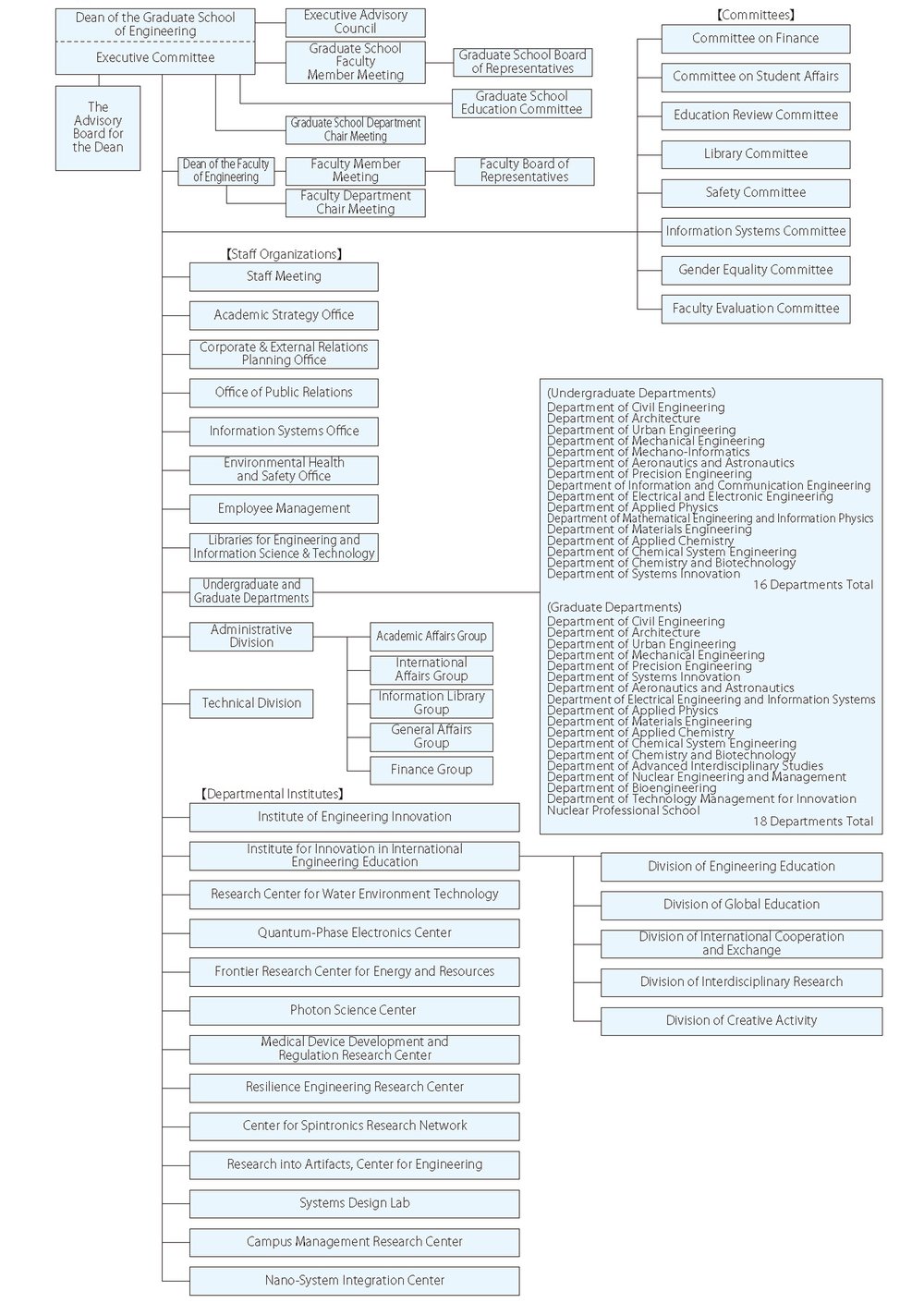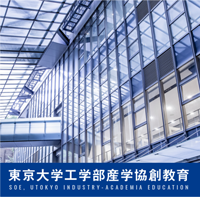Organization
Organization
The School of Engineering consists of nineteen departments, one adjunct research institute, two adjunct centers, and an administration office. The School is responsible for graduate level education (master's and doctoral courses and degrees) in engineering. Faculty members also engage in research activities in their respective specialties while teaching graduate level courses.
Organization of the School of Engineering

Governance and Management
The chart shows the organization of the School of Engineering, which comprises nearly 800 faculty and staff members. Efficient management and streamlined decision-making are made possible by the Faculty Committee, Committee of Department Chairs, Executive Committee, and Planning Committee. Evaluations and recommendations from off-campus intellectuals, solicited by the Executive Consultation Council, also contribute to the School's operations. The Executive Committee, which assists the Dean in the execution of his duties, comprises the Dean of the school, three advisors, and four members drawn from the faculty. The Planning Committee drafts future research and organizational plans for the School of Engineering, in accordance with the goals developed by the Dean's Executive Committee.
The following are the main committees in the School of Engineering: Faculty Committee; Committee of Department Chairs; Standing Committee, whose primary responsibility is to examine school education and doctoral dissertations; Discussion Committee; Scheduling Committee; Student Committee; Library Committee; Budget Committee; and International Exchange Committee. In addition to the above committees, a number of offices have been created. The Office of Safety Control, for example, was established in 1999 to anticipate and prevent hazards, and to address environmental issues. The Information Systems Office manages Internet connectivity, and the Public Relations Office handles off-campus relations and publicity. The Educational Curriculum Project Office was recently established to improve the School's curriculum. This office considers such issues as the structuring of "Collective Knowledge of Engineering", use of distance learning, evaluation of faculty teaching, and evaluation of student achievement.



